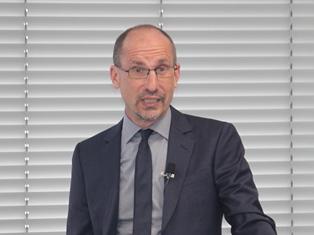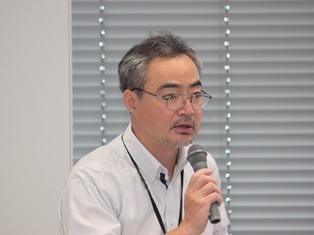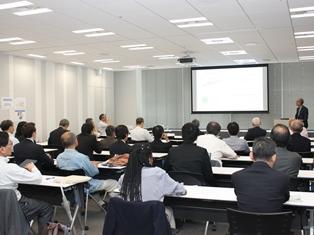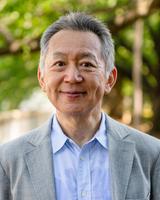イベント開催報告 エネルギー・環境
CIGS エネルギー環境セミナー "Democracy in the Anthropocene"
2017年10月4日(水)
10:30
~ 12:00
開催
会場:キヤノングローバル戦略研究所 会議室3
その上で、社会課題を解決していくための契機としては、1)科学技術全般の進歩により、地球環境問題などの諸課題が間接的に解決される、2)技術進歩を誘因とする政治的変化が起きる、3)開発途上国においては、副次的便益をもたらす近代化は、なおもトップダウン的な社会計画によって実現可能である、との3点が示されました。
フロアからは「進歩と課題解決を前提としているトートロジーに過ぎないのではないか」等の質問があり、活発な討議がなされました。



(左からノードハウス氏、杉山氏)
開催概要
題目:"Democracy in the Anthropocene"
発表者:テッド・ノードハウス(Co-founder and Executive Director, The Breakthrough Institute)
モデレーター:杉山 大志 (キヤノングローバル戦略研究所 上席研究員)
開催趣旨
The global environmental challenges of the 21st century are matched only by the growing social, technological, and economic capacities of human societies to combat them. But populism, polarization, post-modernism, and "post-normal" science all undermine our ability to marshal those capabilities toward better outcomes for people and the environment. Continuing modernization in advanced developed economies has been accompanied by declining confidence in social authority and public institutions. Utopian civil society ideals conflict with practical measures needed to assure better outcomes for people and the environment. Planners and institutions lose their social license at precisely the moment we need them the most. Can a good anthropocene be achieved in bottom up fashion? If not, what will it take to restore public confidence in the institutions and socio-technological systems we will need?
プログラム
ProgramPDF:338KB
発表資料
テッド・ノードハウス 発表資料PDF:11.1MB
発表者紹介
テッド・ノードハウス
Ted Nordhaus is a leading global thinker on energy, environment, climate, human development, and politics. He is the co-founder and executive director of the Breakthrough Institute and a co-author of "An Ecomodernist Manifesto."
Over the last decade, he has helped lead a paradigm shift in climate, energy, and environmental policy. He was among the first to emphasize the imperative to "make clean energy cheap" in The Harvard Law and Policy Review, explained why efforts to establish legally binding international limits on greenhouse gas emissions would fail in the Washington Post and Democracy Journal, made the case for nuclear energy as a critical global warming solution in the Wall Street Journal, has written on the limits to energy efficiency and the need to prepare for climate change in the New York Times, and has argued for the importance of intensifying agricultural production in order to spare land for forests and biodiversity in Scientific American and the Guardian.
His 2007 book Break Through, co-authored with Michael Shellenberger, was called "prescient" by Time and "the best thing to happen to environmentalism since Rachel Carson's Silent Spring" by Wired. (An excerpt in The New Republic can be read here.) Their 2004 essay, "The Death of Environmentalism," was featured on the front page of the Sunday New York Times, sparked a national debate, and inspired a generation of young environmentalists.
Over the years, Nordhaus been profiled in the New York Times, Wired, the San Francisco Chronicle, the National Review, The New Republic, and on NPR. In 2007, he received the Green Book Award and Time magazine's 2008 "Heroes of the Environment" award.
Nordhaus is executive editor of the Breakthrough Journal, which The New Republic called "among the most complete efforts to provide a fresh answer" to the question of how to modernize liberal thought, and the National Review called "The most promising effort at self-criticism by our liberal cousins in a long time."

